- 6 min read
- Published: 18th January 2016
Did you hear the one about 62 billionaires with the same wealth as half the world?
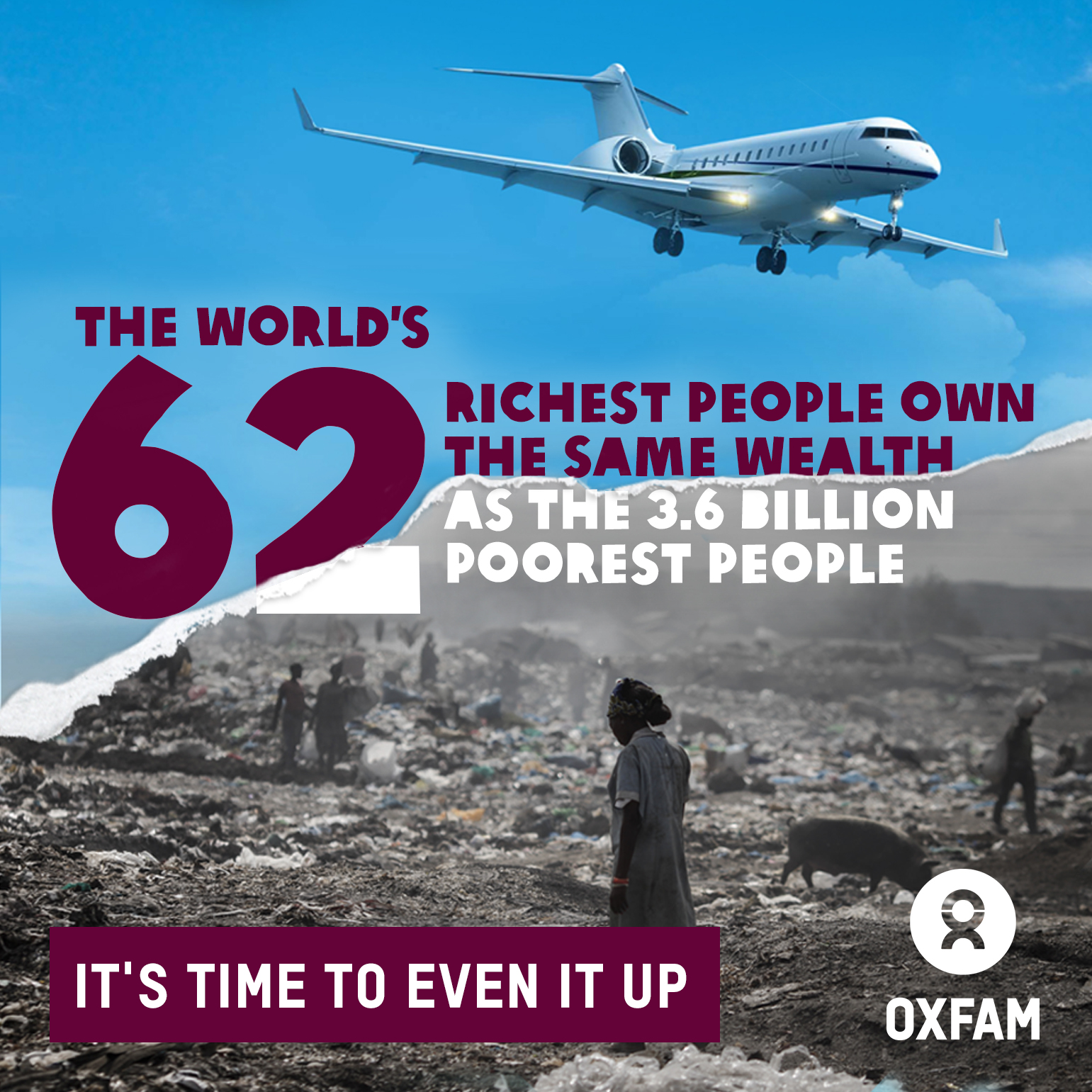
When one talks about 62 billionaires on a bus with the same wealth as the poorest half of the global population, it may sound like the start of a surreal joke – a bad one, with no punchlines and no laughs, except for the privileged few.
That’s because the world has become a much more unequal place and the speed of the runaway inequality bus is accelerating.
Although world leaders have increasingly talked about the need to tackle inequality, and in September agreed a global goal to reduce it, the gap between the richest and the rest has widened dramatically in the past 12 months.
We now have a world where 62 people – so few they would fit on a single coach – own as much as the poorest half of the world’s population. This number has fallen from 80 last year and 388 as recently as 2010.
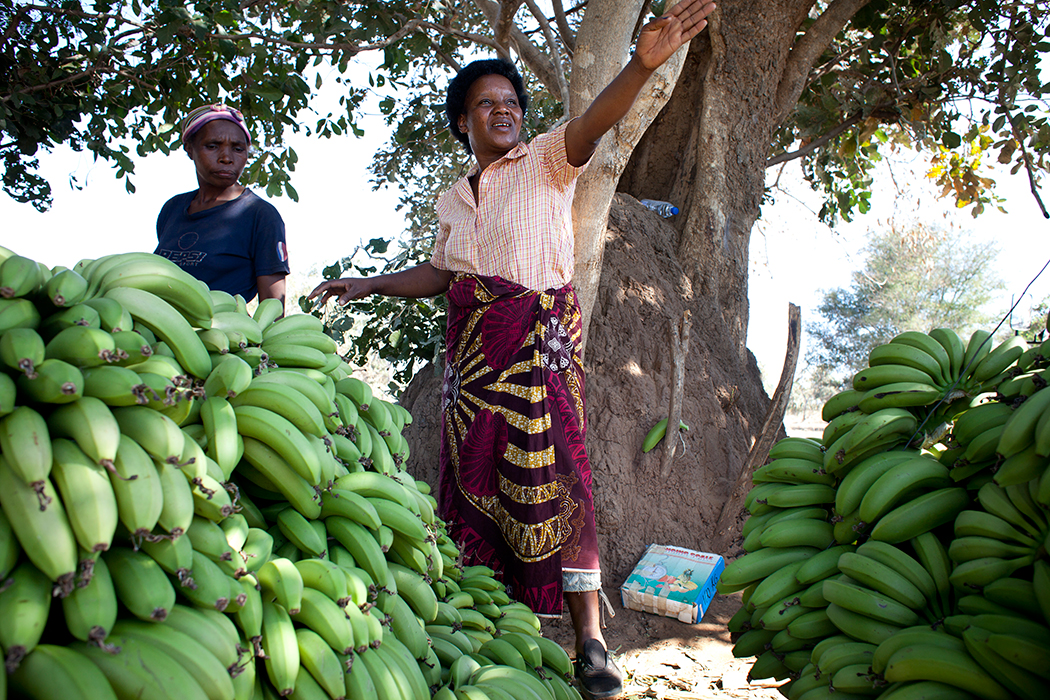
Above: Faith is a banana farmer in Zambia, where she struggles to make ends meet. Zambia is among the top ten fastest growing economies in the world, yet despite economic growth, inequality is getting worse and most of the population are not seeing the benefits of this economic development. The number of people living below the $1.25 poverty line grew from 65 percent in 2003 to 74.5 percent in 2014. Photo: Abbie Trayler-Smith/Oxfam
The wealth of the richest 62 has increased by more than half a trillion dollars to $1.76 trillion (approximately €1.62/£1.22tr.). Meanwhile, the wealth of the poorer half of the world has fallen dramatically by 41% since 2010, despite the global population increasing by around 400 million people during that period.
These shocking statistics are highlighted in a new Oxfam report, An Economy for the 1%, which has been published ahead of this week’s annual gathering of the world’s financial and political elites at the World Economic Forum in Davos, Switzerland.
Oxfam’s prediction – made ahead of last year’s Davos – that the 1% would soon own more than the rest of us by 2016, actually came true in 2015, a year earlier than expected.
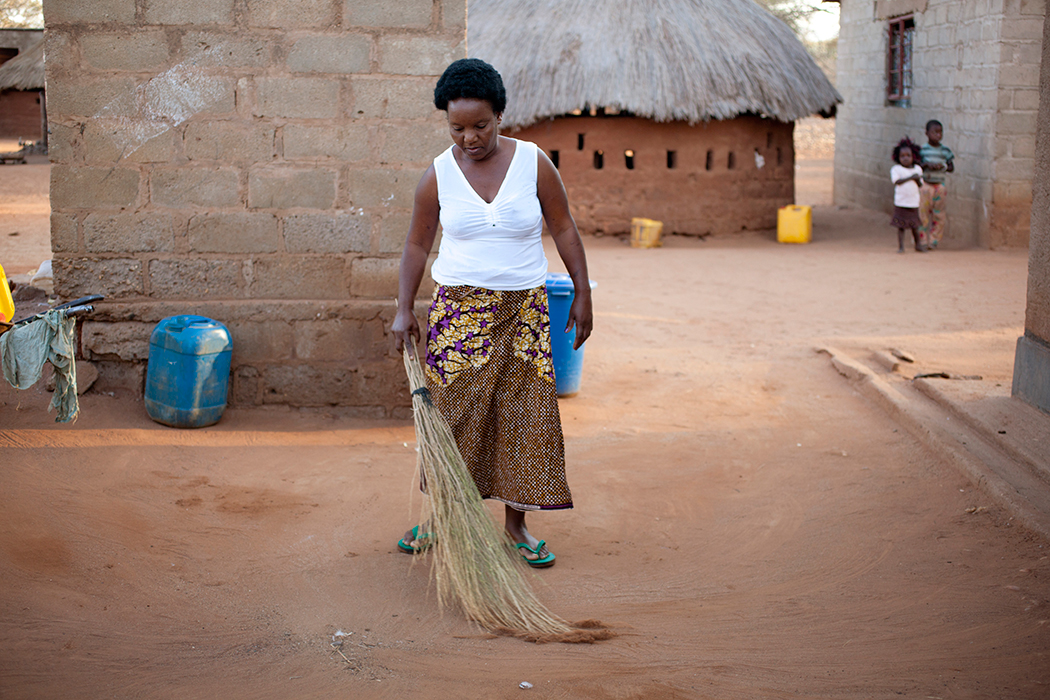
Above: Faith outside her house. Faith lives with her husband Jackson and six children (her two daughters, granddaughter, two nephews, and niece) in Chiawa, Zambia. It’s a rural area with few transport links, health centres, and employment opportunities. One of the reasons inequality in Zambia is so bad is because global tax rules allow multinational mining companies to generate vast profits from their operations in the country, whilst paying very little tax. Lost revenue is desperately needed to improve infrastructure and invest in public services. Oxfam’s research has shown that this is one of the most effective ways of tackling extreme inequality. Photo: Abbie Trayler-Smith/Oxfam
Poorer people are paying the price of rapidly increasing inequality. Far from trickling down, income and wealth are instead being sucked upwards at an alarming rate.
Rather than an economy that works for the prosperity of all, we have instead created a global economy for the 1%. Ordinary working families are up against odds that are impossible to beat. The big winners are those at the top and our economic system is heavily skewed in their favour.
Power and privilege allows the richest individuals and companies to write the rules of the economic game to avoid paying their fair share to society. An elaborate system of tax loopholes and an industry of wealth managers ensures that vast wealth stays untaxed, far from the reach of ordinary citizens and their governments.
This potential tax revenue is needed to pay for vital services like schools and hospitals; the services which play a vital role in tackling inequality and escaping poverty. It means governments keep putting their hands in the pockets of ordinary taxpayers to pay for the shortfall – many of whom can least afford it.
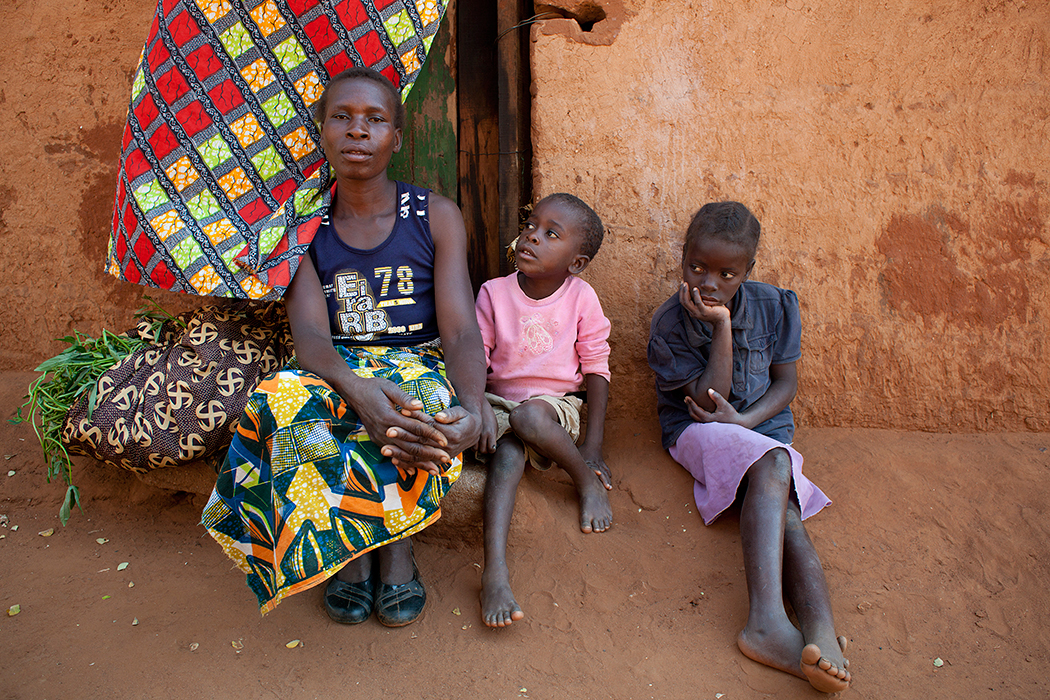
Above: “I only manage through survival. It’s just survival,” says Barbara Chinyeu, an Oxfam-supported banana farmer in Zambia, pictured with her children 10-year-old Gertrude and Edward, aged 5. Barbara is a widow who risks her life every day by gathering water in a crocodile-infested river so she can to irrigate her crops and feed her two children. Photo: Abbie Trayler-Smith/Oxfam
Oxfam analysed more than 200 companies, including the world’s biggest and the World Economic Forum’s strategic partners, and has found that 9 out of 10 companies analysed have a presence in at least one of 10 jurisdictions classified by the report as the most aggressive for tax avoidance, a list that includes Ireland.
It is estimated that tax dodging by multinational corporations costs developing countries at least $100billion every year. Globally, it is estimated that a total of $7.6tr of individuals’ wealth sits offshore (i.e. is deposited in low-tax jurisdictions) – a twelfth of the total. If tax were paid on the income that this wealth generates, an extra $190billion would be available to governments every year.
Just consider how that money could help the vulnerable poor in a country such as Malawi, for example.
Video below: Hear a nurse and teacher in Malawi speak about their daily challenges to help patients and pupils.
Inequality in Malawi: Health & Education
Because despite growing wealth among the urban elite over the past seven years, Malawi – one of the world’s poorest countries with seriously under-resourced health and education systems – has also seen inequality increase.
As well as a crackdown on tax dodging Oxfam is urging world leaders to increase investment in public services and act to boost the income of the lowest paid.
The new Oxfam report shows how women globally are disproportionately affected by inequality – of the current ‘62’, 53 are men and just nine are women. The majority of low paid workers around the world are women.
Oxfam Ireland is also calling on our politicians to do more to end the gender pay gap that sees that sees women earn less than men (almost 14% in the Republic of Ireland; 12.5% in Northern Ireland).
It is time our politicians take note and reject this broken economic model. We cannot continue to allow hundreds of millions of people to go hungry while resources that could be used to help them are sucked up by those at the top.
Inequality is not inevitable. Inequality is the result of policy choices. We need our leaders to tell the 1% that the 99% and particularly those struggling to make ends meet here and overseas have had enough.
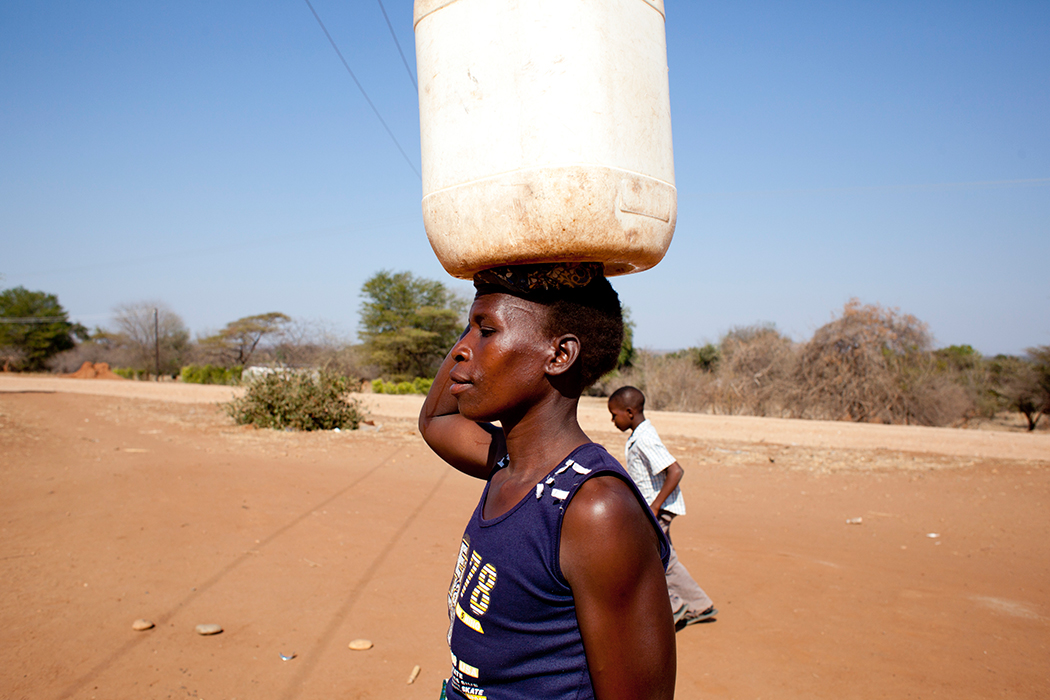
Above: Barbara carries water to her house. Photo: Abbie Trayler-Smith/Oxfam
Oxfam is calling for urgent action – a crackdown on tax dodging, increased investment in public services and action to boost the income of the lowest paid – to tackle the inequality crisis and reverse the dramatic fall in wealth of the poorest half of the world.
Allowing governments to collect the taxes they are owed from companies and rich individuals will be vital if world leaders are to meet their new goal, set last September, to eliminate extreme poverty by 2030.
As a priority, Oxfam is calling for an end to tax dodging which has seen increasing use of offshore centres by rich individuals and companies to avoid paying their fair share to society. This has denied governments valuable resources needed to tackle poverty and inequality.
With 2016 being an election year throughout Ireland, north and south, Oxfam is calling on election candidates to prioritise inequality and inviting voters to join its campaign calling on politicians to tackle tax dodging, roll out universal access to healthcare and end the gender pay gap in their respective new programmes for government.
Sign up to our Even it Up campaign here.
Jim Clarken is Chief Executive of Oxfam Ireland. Follow him on Twitter here.
